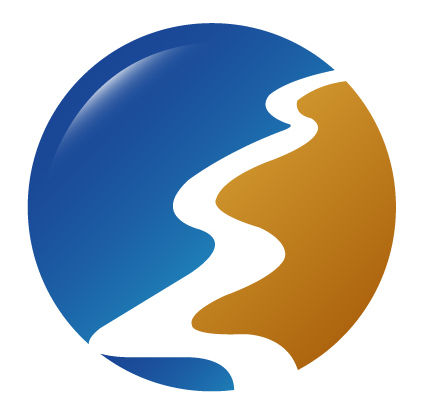预约演示
更新于:2025-05-07
Bristol-Myers Squibb Pharma EEIG
子公司|Ireland
子公司|Ireland
更新于:2025-05-07
概览
标签
免疫系统疾病
其他疾病
肿瘤
小分子化药
单克隆抗体
降解型分子胶
疾病领域得分
一眼洞穿机构专注的疾病领域
暂无数据
技术平台
公司药物应用最多的技术
暂无数据
靶点
公司最常开发的靶点
暂无数据
| 排名前五的药物类型 | 数量 |
|---|---|
| 小分子化药 | 11 |
| 单克隆抗体 | 4 |
| 降解型分子胶 | 3 |
| 自体CAR-T | 2 |
| 融合蛋白 | 2 |
关联
30
项与 Bristol-Myers Squibb Pharma EEIG 相关的药物作用机制 ROS1抑制剂 [+3] |
在研适应症 |
非在研适应症 |
最高研发阶段批准上市 |
首次获批国家/地区 美国 |
首次获批日期2023-11-15 |
作用机制 KRAS G12C抑制剂 |
在研适应症 |
非在研适应症 |
最高研发阶段批准上市 |
首次获批国家/地区 美国 |
首次获批日期2022-12-12 |
靶点 |
作用机制 TYK2抑制剂 |
最高研发阶段批准上市 |
首次获批国家/地区 美国 |
首次获批日期2022-09-09 |
3
项与 Bristol-Myers Squibb Pharma EEIG 相关的临床试验CTR20221210
一项比较口服阿扎胞苷(CC-486)加最佳支持治疗与最佳支持治疗作为完全缓解的中国急性髓系白血病患者的维持治疗的疗效和安全性的2期、随机、双盲、安慰剂对照研究
主要目的:
评价CC-486维持治疗与安慰剂相比是否可改善首次达到完全缓解(CR)或血细胞计数未完全恢复的完全缓解(CRi)的急性髓系白血病(AML)患者的无复发生存期(RFS);
次要目的:
确定CC-486维持治疗与安慰剂相比对首次达到CR/CRi的AML受试者的总生存期(OS)的影响;
确定CC-486维持治疗与安慰剂相比对首次达到CR/CRi的AML受试者其他疗效终点的影响;
评估CC-486在AML受试者中的安全性和耐受性;
表征CC-486在AML受试者中的药代动力学;
评价骨髓中残留病灶的预后和治疗意义;
确定CC-486与安慰剂相比对健康相关生活质量(HRQoL)和医疗资源利用的影响
开始日期2022-08-19 |
申办/合作机构 新基医药咨询(上海)有限公司 [+3] |
CTR20212323
纳武利尤单抗联合伊匹木单抗对比化疗治疗一线胸膜间皮瘤
主要目的:评估纳武利尤单抗联合伊匹木单抗与培美曲塞联合顺铂或卡铂方案作为一线疗法治疗中国不可切除恶性胸膜间皮瘤参与者的OS。
次要目的:评估纳武利尤单抗联合伊匹木单抗和培美曲塞联合顺铂或卡铂作为一线疗法治疗中国不可切除胸膜间皮瘤参与者的ORR(通过研究者确定),PFS,安全性和耐受性。
开始日期2022-01-25 |
申办/合作机构  百时美施贵宝(中国)投资有限公司 百时美施贵宝(中国)投资有限公司 [+4] |
CTR20132365
400mg伊马替尼治疗3个月未获得最佳响应的慢粒白血病患者中达沙替尼vs伊马替尼治疗的开放标记、随机2B期研究
本研究的主要目的是比较一线伊马替尼治疗未获得最佳反应(BCR-ABL>10%IS),在第3个月被随机分配接受达沙替尼100mgQD或任何剂量伊马替尼治疗的患者中,一线伊马替尼第1天治疗后的12个月MMR率.
开始日期2014-05-08 |
申办/合作机构  百时美施贵宝(中国)投资有限公司 百时美施贵宝(中国)投资有限公司 [+3] |
100 项与 Bristol-Myers Squibb Pharma EEIG 相关的临床结果
登录后查看更多信息
0 项与 Bristol-Myers Squibb Pharma EEIG 相关的专利(医药)
登录后查看更多信息
1
项与 Bristol-Myers Squibb Pharma EEIG 相关的文献(医药)2019-03-01·European Journal of Cancer1区 · 医学
ACCELERATE and European Medicine Agency Paediatric Strategy Forum for medicinal product development for mature B-cell malignancies in children
1区 · 医学
Article
作者: Norga, Koenraad ; Adamson, Peter ; Pearson, Andrew D J ; Vezan, Remus ; Vassal, Gilles ; Bhargava, Pankaj ; Burke, Amos ; Klapper, Wolfram ; Miles, Rodney R ; Scobie, Nicole ; Ligas, Franca ; Schrappe, Martin ; Bollard, Catherine M ; Nottage, Kerri ; Burkhardt, Birgit ; Buechner, Jochen ; Zugmaier, Gerhard ; Marcus, Robert ; Minard-Colin, Veronique ; Kim, Su Young ; Horton-Taylor, Danielle ; Bolotin, Ellen ; Bomken, Simon ; Weiner, Susan ; Balakumaran, Arun ; Egorov, Anton ; Lesa, Giovanni ; Sterba, Jaroslav ; Copland, Christopher ; Gross, Thomas ; Pacaud, Lida ; Chiodin, Davy ; Ricafort, Rosanna ; Farhan, Mahdi ; Caron, Hubert ; Marshall, Lynley V ; Benettaib, Bouchra ; Reaman, Gregory ; Demolis, Pierre
100 项与 Bristol-Myers Squibb Pharma EEIG 相关的药物交易
登录后查看更多信息
100 项与 Bristol-Myers Squibb Pharma EEIG 相关的转化医学
登录后查看更多信息
组织架构
使用我们的机构树数据加速您的研究。
登录
或

管线布局
2026年02月28日管线快照
管线布局中药物为当前组织机构及其子机构作为药物机构进行统计,早期临床1期并入临床1期,临床1/2期并入临床2期,临床2/3期并入临床3期
批准上市
24
6
其他
登录后查看更多信息
当前项目
| 药物(靶点) | 适应症 | 全球最高研发状态 |
|---|---|---|
硫酸阿扎那韦 ( HIV-1 protease ) | HIV感染 更多 | 批准上市 |
瑞普替尼 ( ROS1 x TrkA x TrkB x TrkC ) | NTRK融合阳性实体瘤 更多 | 批准上市 |
贝拉西普 ( CD80 x CD86 ) | 肾移植排斥反应 更多 | 批准上市 |
阿巴西普 ( CD80 x CD86 ) | 银屑病关节炎 更多 | 批准上市 |
艾基维仑赛 ( BCMA ) | 多发性骨髓瘤 更多 | 批准上市 |
登录后查看更多信息
药物交易
使用我们的药物交易数据加速您的研究。
登录
或

转化医学
使用我们的转化医学数据加速您的研究。
登录
或

营收
使用 Synapse 探索超过 36 万个组织的财务状况。
登录
或

科研基金(NIH)
访问超过 200 万项资助和基金信息,以提升您的研究之旅。
登录
或

投资
深入了解从初创企业到成熟企业的最新公司投资动态。
登录
或

融资
发掘融资趋势以验证和推进您的投资机会。
登录
或

生物医药百科问答
全新生物医药AI Agent 覆盖科研全链路,让突破性发现快人一步
立即开始免费试用!
智慧芽新药情报库是智慧芽专为生命科学人士构建的基于AI的创新药情报平台,助您全方位提升您的研发与决策效率。
立即开始数据试用!
智慧芽新药库数据也通过智慧芽数据服务平台,以API或者数据包形式对外开放,助您更加充分利用智慧芽新药情报信息。
生物序列数据库
生物药研发创新
免费使用
化学结构数据库
小分子化药研发创新
免费使用

